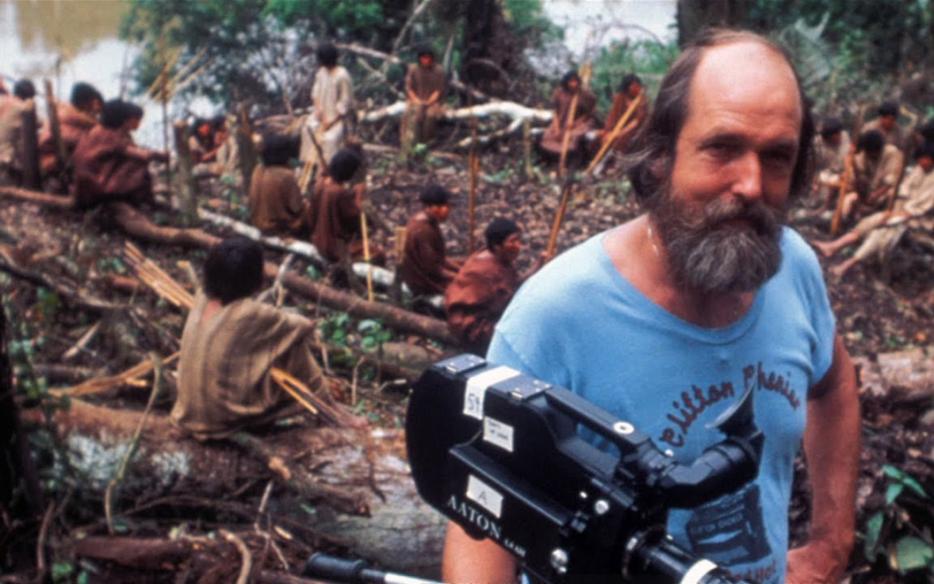Les Blank passed away on April 7th, 2013, at the age of 77. The three-part retrospective screening at the current Hot Docs film festival, presented as an award for Outstanding Achievement, was never intended to be a postmortem tribute, but it’s hard to imagine a more appropriate commemoration. Les Blank was always engaged in a kind of accidental remembrance: his three dozen documentaries, each an act of loving portraiture, were snapshots in the moment but time capsules upon reflection, his filmography as much historical record as it is an extended family album.
The Hot Docs award retrospective has been divided into three themed programs, but it’s the third of these suites, entitled “Pleasures,” that proves most representative of the unique gifts Blank leaves behind. “Pleasures” opens with Dry Wood, a much-beloved early short from 1973 about local musicians in French Louisiana, and a film that’s typical of Blank’s sensibility: drawing heavily on the sights and sounds (and smells) of the Black Creole culture within which it’s steeped, Dry Wood is loose and lackadaisical, drifting through cookouts and concert performances with an eye for the texture of the area and a feel for the spirit of the milieu. Like all of Blank’s best work, it’s a film about the experience, captured with little mediation; the pleasure here lies in looking and listening, in letting the world Blank captures wash over you.
Always for Pleasure remains one of the most purely enjoyable films ever made for the simple reason that it depicts pure enjoyment. And a very particular cultural enjoyment at that: set in and around mardi gras celebrations in New Orleans circa 1978, the film now looks more like a work of fantasy fiction than an authentic document of the era. The film itself is a celebration: a gleeful acclamation of a culture in perpetual revelry—where even funerals, as we see here, are triumphant declarations of life over death—it’s more content as documentaries go to be infectious than strictly informational. Always for Pleasure is, in a sense, about the liberating effect of indulgence, suggesting that harmony (of race, class, gender) can be found in a party in the street; its conception of urban spaces as shared public clubs and impromptu parade grounds makes the New Orleans of the period look like a veritable paragon of social unity. The most inconsequential gestures—brewing a mound of crawfish in hot sauce, tossing an empty beer can on the curb, stumbling upon a recipe for beans and ham—become positively soul-enriching, together composing a lifestyle of vitality and vibrancy that makes modern living seem painfully dull by comparison.
It’s plausible that the two filmmakers with whom Blank is most commonly compared, Errol Morris and Werner Herzog, could have made a film like Gap-Toothed Women, at least in terms of subject and conception. On paper it seems of a piece with the sort of thing you’d find in early Morris films like Gates of Heaven, Vernon Florida and Mr. Death: The Rise and Fall of Fred A. Leuchter Jr., or in late-period nonfiction works by Herzog like Grizzly Man, Encounters at the End of the World, and his recent film about death row inmates Into the Abyss. What these documentaries have in common more than anything else is the peculiarity of their subjects: whether it’s shut-in devotees of a small-town pet cemetery, eccentric Floridian retirees, delusion execution technicians turned holocaust deniers, self-appointed bear caretakers, or zoologists living in Antarctica, the high-concept selling point is the examination of an idiosyncratic milieu.






